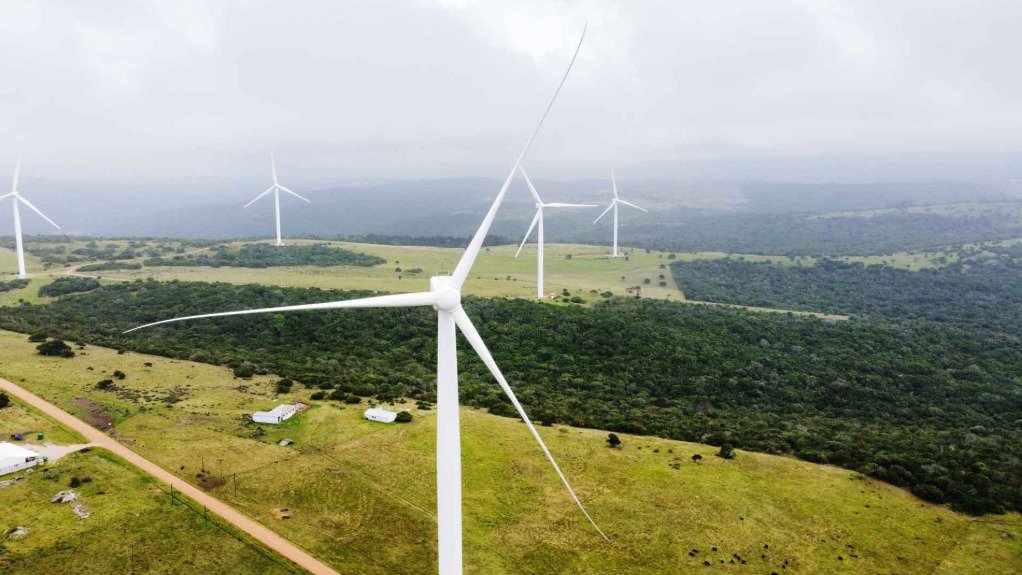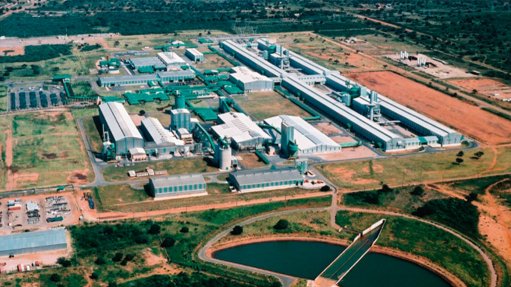Private renewable-energy projects accelerating energy sector growth



GROWTH IMPETUS An increase in private-sector generation projects is required to meet rising energy consumer demand requirements
AMITH SINGH South Africa’s renewable-energy growth is critical for both economic and environmental progress
The removal of the licensing threshold for embedded generation has boosted the renewable-energy market by allowing private-sector companies to procure energy directly from independent power producers (IPPs), thereby facilitating greater investment across the renewable-energy landscape, says financial services company Nedbank Corporate and Investment Banking (CIB).
The company, which also wants to advance energy security and affordability, will continue to scale up its historical commitment towards the renewable-energy sector, in line with the need to support socioeconomic development while driving the transition to a zero-carbon energy system.
In addition to its significant financial commitment to the South African Renewable Energy Independent Power Producer Procurement Programme, Nedbank CIB will further increase financing to private power generation for corporate and industrial projects, to accelerate the transition.
Nedbank CIB energy finance head Amith Singh highlights that there is significant interest from energy consumers looking to access electricity through private power generation from predominantly renewable-energy projects.
“This interest has ranged from smaller onsite projects to large offsite projects where electricity will be wheeled across the national electricity grid, from the generating project to wherever the consumer is located in South Africa,” he says.
Singh explains that the country’s energy regulatory framework is providing a good foundation to transform the energy sector to a liberalised one. Additionally, Nedbank CIB cites the evolution and role of aggregators in facilitating flexible, multi-offtake arrangements, contending that they will be an important disrupter in allowing more corporates to buy cheaper, greener power.
Projects, Investment Considerations
In outlining its commitment to decarbonisation and long-term sustainability, Nedbank CIB points out that it is actively involved in the funding of the Envusa Energy project – a joint venture between diversified mining major Anglo American and French renewable-energy group EDF Renewables – as it is providing financing for the 520 MW wind and solar project, which will supply clean energy to Anglo American’s mining operations.
Additionally, Nedbank CIB has also structured a R25-billion funding platform for IPP Pele Green Energy, enabling this company to deliver 850 MW of clean energy and expand its pipeline to 11 GW by 2027. Singh notes that this initiative is vital to enabling the just energy transition, while also supporting job creation and black economic empowerment.
He highlights that Nedbank CIB is also involved in co-financing the Impofu wind farms in the Eastern Cape, developed by renewable-energy company Enel Green Power, adding that these wind farms will generate 330 MW of clean energy, further contributing to decarbonisation imperatives.
The infrastructure for this project also includes 116 km of power lines to improve energy security and grid capacity.
When evaluating and selecting energy projects, Nedbank CIB evaluates each project’s technical soundness, focusing on energy generation technology, construction timelines and operational efficiency. Singh also highlights that, proven renewable technologies, such as battery energy storage systems, wind and solar, are prioritised for their “reliability, quickness to construct and least cost status.”
Nedbank CIB also ensures that it secures bankable power purchase agreements with credible offtakers, such as mining and industrial companies, to reduce risk and guarantee stable revenue. The introduction of aggregators has necessitated that banks look to fund these projects with alternate security structures which the aggregators obtain from third parties. This will evolve as the market matures to a more liberalised market.
Looking forward, Singh says that renewable energy remains the most affordable form of energy and that the technology associated with this form of energy should be used to reduce exposure to above-average tariffs from Eskom.
He adds that embedded-generation projects, such as solar PV, when combined with battery storage solutions are a cost-effect mechanism to accelerate clean electricity access. “We are also confident that Eskom has the skills and technology to manage the stability of the grid as the volumes of renewable energy in our grid increases.”
Nedbank CIB will continue to increase its drive to finance private renewable-energy generation projects to position the economy for a sustainable future.
“South Africa’s renewable-energy growth is critical for both economic and environmental progress. “With the fast-approaching adoption of the EU Carbon Border Tax, which will make our exports non-competitive, resulting in job losses and contracting GDP, we must act fast to ensure we are prepared to mitigate the impact of this and other carbon taxes by increasing the penetration of renewable energy in our energy mix. We need a larger concentration of renewables in our energy mix quickly,” Singh concludes.
Article Enquiry
Email Article
Save Article
Feedback
To advertise email advertising@creamermedia.co.za or click here
Announcements
What's On
Subscribe to improve your user experience...
Option 1 (equivalent of R125 a month):
Receive a weekly copy of Creamer Media's Engineering News & Mining Weekly magazine
(print copy for those in South Africa and e-magazine for those outside of South Africa)
Receive daily email newsletters
Access to full search results
Access archive of magazine back copies
Access to Projects in Progress
Access to ONE Research Report of your choice in PDF format
Option 2 (equivalent of R375 a month):
All benefits from Option 1
PLUS
Access to Creamer Media's Research Channel Africa for ALL Research Reports, in PDF format, on various industrial and mining sectors
including Electricity; Water; Energy Transition; Hydrogen; Roads, Rail and Ports; Coal; Gold; Platinum; Battery Metals; etc.
Already a subscriber?
Forgotten your password?
Receive weekly copy of Creamer Media's Engineering News & Mining Weekly magazine (print copy for those in South Africa and e-magazine for those outside of South Africa)
➕
Recieve daily email newsletters
➕
Access to full search results
➕
Access archive of magazine back copies
➕
Access to Projects in Progress
➕
Access to ONE Research Report of your choice in PDF format
RESEARCH CHANNEL AFRICA
R4500 (equivalent of R375 a month)
SUBSCRIBEAll benefits from Option 1
➕
Access to Creamer Media's Research Channel Africa for ALL Research Reports on various industrial and mining sectors, in PDF format, including on:
Electricity
➕
Water
➕
Energy Transition
➕
Hydrogen
➕
Roads, Rail and Ports
➕
Coal
➕
Gold
➕
Platinum
➕
Battery Metals
➕
etc.
Receive all benefits from Option 1 or Option 2 delivered to numerous people at your company
➕
Multiple User names and Passwords for simultaneous log-ins
➕
Intranet integration access to all in your organisation




















